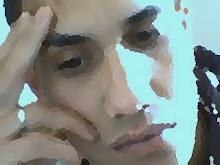You must first get a diagnosis before you can begin treatment is any kind. Incontinence is commonly caused by a bladder infection and treatments are easy to get and take. There are also medicines that are formulated to increase the person's ability to tighten the bladder sphincter.
This waste is then sent through the ureters into the bladder which is like a storage area which can be voluntarily controlled. At the bottom of the bladder is a muscle called the sphincter which act as an outlet valve, that is controlled by the brain. When the bladder is full, it sends a signal to the brain that it is full and then the brain prompts the sphincter to open, thereby releasing the pee.
This ability to control the bladder can be tormented by many factors like aging, multiple sclerosis, spinal cord injuries, weak pelvic muscles and even enlargement of the prostate gland.
Side-effects to taking oral medication include a dry mouth and frequent feeling of thirst, while skin irritations is a common adverse reaction to application of skin patches and creams. Some people resort to taking anti-depressant drugs such as Imipramine which has been reported to help relax the bladder muscles. It is a prescribed medication for people with incontinence or bladder control problems. The side effect, however, often includes drowsiness.The more serious side effects to taking Imipramine should be discussed with the doctor and are often dizziness, blurred vision, and irregular heartbeat.
Urinary incontinence is commonly caused by the weakening of the tissue surrounding and supporting the bladder area. This is evidently seen in cases of women reaching their menopausal stage.
Furthermore, women at their post-menopausal stage experience bladder control problems as their estrogen level is in its lowest. Estrogen is responsible for enhancing the nerve functions and helps control the deterioration of the tissues, so having low estrogen level contributes to the weakening of the human bladder.
Sometimes older children who are suffering from bedwetting can be prescribed tricyclic antidepressants. You should always watch your children closely for any side effects or changes in mood and eating habits. Another medication prescribed to reduce nighttime urine production is Desmopresin.
If you are suffering from bladder inflammation and hence the need to constantly urinate, you too are able to do something about this with the help of organic medication.
The remedy is called 'Cornsilk' and is produced from the fibers on the stalk of the corn. It has a detoxifying and relaxing effect which gives it anti-inflammatory properties and makes it useful in cleansing the bladder.
This waste is then sent through the ureters into the bladder which is like a storage area which can be voluntarily controlled. At the bottom of the bladder is a muscle called the sphincter which act as an outlet valve, that is controlled by the brain. When the bladder is full, it sends a signal to the brain that it is full and then the brain prompts the sphincter to open, thereby releasing the pee.
This ability to control the bladder can be tormented by many factors like aging, multiple sclerosis, spinal cord injuries, weak pelvic muscles and even enlargement of the prostate gland.
Side-effects to taking oral medication include a dry mouth and frequent feeling of thirst, while skin irritations is a common adverse reaction to application of skin patches and creams. Some people resort to taking anti-depressant drugs such as Imipramine which has been reported to help relax the bladder muscles. It is a prescribed medication for people with incontinence or bladder control problems. The side effect, however, often includes drowsiness.The more serious side effects to taking Imipramine should be discussed with the doctor and are often dizziness, blurred vision, and irregular heartbeat.
Urinary incontinence is commonly caused by the weakening of the tissue surrounding and supporting the bladder area. This is evidently seen in cases of women reaching their menopausal stage.
Furthermore, women at their post-menopausal stage experience bladder control problems as their estrogen level is in its lowest. Estrogen is responsible for enhancing the nerve functions and helps control the deterioration of the tissues, so having low estrogen level contributes to the weakening of the human bladder.
Sometimes older children who are suffering from bedwetting can be prescribed tricyclic antidepressants. You should always watch your children closely for any side effects or changes in mood and eating habits. Another medication prescribed to reduce nighttime urine production is Desmopresin.
If you are suffering from bladder inflammation and hence the need to constantly urinate, you too are able to do something about this with the help of organic medication.
The remedy is called 'Cornsilk' and is produced from the fibers on the stalk of the corn. It has a detoxifying and relaxing effect which gives it anti-inflammatory properties and makes it useful in cleansing the bladder.
About the Author:
Watch the reviews about the Bladder Control Medication and see how you can get a free trial from the official website.


